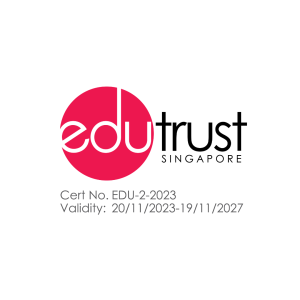Unit description
Databases
This unit focuses on database design, implementation and management. Topics include data modelling, database administration, logical and physical database design, non-relational databases, recovery, relational model, security, standard query language (SQL) and transaction management. The theory material is complemented by practical work using common database management systems.
Information Technology Project Management
This unit identifies, explains and explores a project management approach to information and communications technology (ICT) systems development. In particular, the content is specifically designed to deliver practical insights into managing and coordinating the activities of an ICT project.
Each topic in the unit covers content that explains the journey from project initiation to project closure, and students can gain an understanding of these issues by assessing and making decisions about a real-world scenario. As a part of this knowledge and skill development, students will learn about key aspects of cost management, procurement management, project analysis, project integration management (PIM), quality management, resource management, risk management, scheduling, scope management, and stakeholder and communications management. Additionally, students can gain an understanding of key documentation and industry standards, which can help them in their careers.
Introduction to ICT Research Methods
This unit provides an introduction to research in the information and communications technology (ICT) discipline. It explores the kinds of research questions addressed in ICT research and provides an opportunity for students to understand the broad range of research approaches used in ICT research including action research, case study research, design research, experimental research and survey research.
Students will develop both research and project management skills, and gain the knowledge and skills needed to critically evaluate the ICT research literature.
IT Professional Practice Project
Students in this team-based unit will use information technology (IT) approaches to solve real-world problems from a range of domains. The creation of relevant project deliverables will require students to build upon skills developed during their studies. They will learn to appreciate the interdisciplinary nature of their project and how the skills of team members from different IT majors are required to solve complex problems. Project management and communication with clients and other stakeholders in a professional manner will be emphasised.
Principles of Computer Science
This unit is designed to develop problem-solving and programme design skills by using an object-oriented programming language. Major topics include algorithm design, procedural abstractions, use of libraries as collection of black-box code modules, the concepts of pre- and post conditions, strings, arrays, an introduction to object-oriented concepts including data abstraction, encapsulation, classes and object references, inheritance, introduction to recursion, streams and file input and output, and the definition and use of common classes — lists, stack and queues.
Systems Analysis and Design
This unit introduces methods and techniques for analysing problematic organisational situations, particularly those leading to the development of an information system, and it draws on both technical and organisational materials to provide the knowledge and skills necessary to design and implement an operational system.
User Interface Design
This unit focuses on providing an understanding of interface and interaction design, especially for game and simulation systems. Topics include an overview of concepts of interface design, functions of interface and interaction, gesture-driven interface design, human-computer interactions (HCI) and natural user interfaces (NUI), and interaction design for different platforms.
Virtual Realities and Game Software Design
This unit aims to give students a general background of virtual realities (augmented, mixed and virtual) and game software design to create something fun and entertaining. It addresses issues in computer and video game software design, including elements of game creation, gameplay and game concepts. Topics include character design, creative play, design process, design documentation, environment design, game balancing, player motivation and user interface design. This unit does not treat game software design as purely art or engineering.
Virtual Realities and Games Software Production
This unit focuses on the theories, techniques and tools for designing, constructing and producing interactive 3D visualisation systems including computer games, interactive modelling software, and virtual reality and augmented reality software. Besides focusing on theories, techniques and tools, additional topics include budgeting, design documentation, evaluation, group dynamics, project management, and team roles and responsibilities.
Using industry-standard designs and development tools, students will apply the theoretical aspects of this unit to create games and virtual/augmented reality applications in a team environment.





